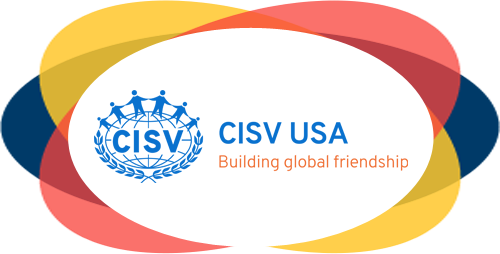Written by Susan Brogden
When faced with a blank sheet of paper and the task of filling it with a college application essay, most 18-year-olds can identify with the British rock band Queen’s 1981 hit Under Pressure .
There’s no shortage of advice on how to write a good one. “Anyone can write a college application essay that stands out,” say senior English teachers and how-to websites. “Write the story no one else can tell.”
But as anyone who has tackled this task knows, writing an essay that stands out is more easily suggested than accomplished. How does a high school senior, in 600 words or less, reveal who he is, beyond grades, test scores, lists of activities? How does she reveal her values, her animating principles, her world-view?
For some CISVers, the answer is simple: shaped by their experiences as Village and Step Up and Youth Meeting delegates, as JCs, as Seminar Campers, as Interchange partners, as JB officers, they define themselves by describing CISV life and what they have learned from it.
Last fall, Executive Director Laura Ripberger asked the CISV USA nation for examples of college application essays featuring CISV. The result was a trove of memories and reflections. Mark Warren reminisced about writing his Georgetown University essay by hand, on air mail paper, on a Pan Am flight from Chattanooga to Liberia, where he served as a JC at a 1979 Village. Neither Pan Am nor air mail paper exist any longer, but Mark’s application to GU’s School of Foreign Service was successful.
Mark’s interest in the School of Foreign Service illustrates something fairly common among CISVers: educational and career choices that reflect their desire to be citizens of the world. Emily Doris chose the University of Delaware’s World Scholars program, and in her application essay, wrote of her JC and JB experiences. For Lucas Alves, CISV helped shape his interest in justice and government policy. His application essay described his hope of conducting overseas research in economically-challenged communities.
Maya Kahn wrote about comforting Spanish Villagers in the aftermath of a 2017 terrorist attack in Barcelona. As a JC, she understood the power of presence and of listening as children confronted the concept of random violence for the first time.
Montgomery Parker described the qualities of leadership and how, as a JC, she witnessed leadership at its best. She came home from her Village with a determination to utilize and continuously hone her own leadership skills.
Olivia Kato wrote of “traveling the world to meet other curious people my age that want to understand what other countries are really like” and of the importance of combating stereotypes and prejudices through peace education and cross-cultural friendships.
Caroline Taylor wrote her college application essay in Germany, during a gap year spent participating in the Congress Bundestag Youth Exchange. Her many CISV experiences had prepared her well for the challenges of learning a new language and navigating an unfamiliar landscape and culture.
Ben Blackshear described the emotion he felt as a JC, as he recognized his personal transition from “naïve and goofy 11-year-old to a responsible global citizen.” In Ben’s words, his CISV experiences “were more than just fun summer camps, but active institutions of change, more than just playing soccer and talking, but building friendships and seeking peace through understanding the cultures and values of youth and adults from different places around the globe.”
A theme runs through these essays, and that theme is growth. Growth in maturity, in self-understanding, in the acceptance and embrace of others, in leadership, in the ability to plan and execute, in willingness to leave behind the familiar for the unknown. Already global citizens, CISVers are primed to become contributing members of any campus community, and college admissions staffs take notice.
Doris Allen would approve.

